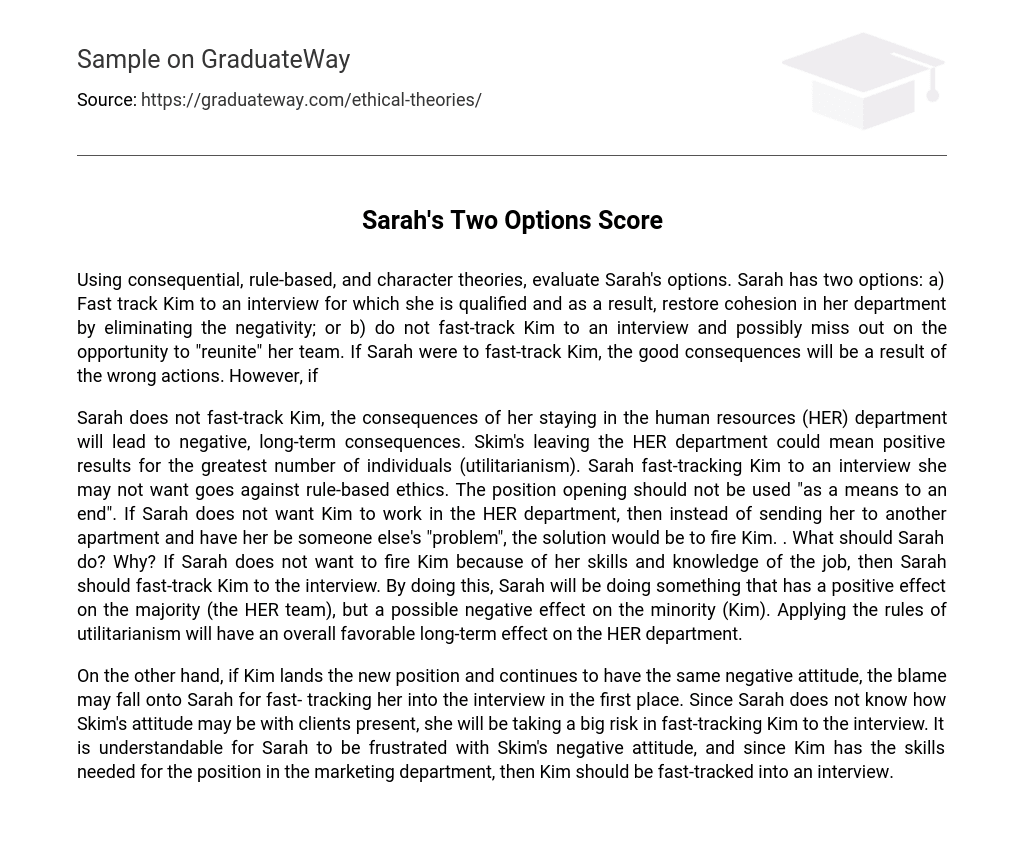Using consequential, rule-based, and character theories, evaluate Sarah’s options. Sarah has two options: a) Fast track Kim to an interview for which she is qualified and as a result, restore cohesion in her department by eliminating the negativity; or b) do not fast-track Kim to an interview and possibly miss out on the opportunity to “reunite” her team. If Sarah were to fast-track Kim, the good consequences will be a result of the wrong actions. However, if
Sarah does not fast-track Kim, the consequences of her staying in the human resources (HER) department will lead to negative, long-term consequences. Skim’s leaving the HER department could mean positive results for the greatest number of individuals (utilitarianism). Sarah fast-tracking Kim to an interview she may not want goes against rule-based ethics. The position opening should not be used “as a means to an end”. If Sarah does not want Kim to work in the HER department, then instead of sending her to another apartment and have her be someone else’s “problem”, the solution would be to fire Kim. . What should Sarah do? Why? If Sarah does not want to fire Kim because of her skills and knowledge of the job, then Sarah should fast-track Kim to the interview. By doing this, Sarah will be doing something that has a positive effect on the majority (the HER team), but a possible negative effect on the minority (Kim). Applying the rules of utilitarianism will have an overall favorable long-term effect on the HER department.
On the other hand, if Kim lands the new position and continues to have the same negative attitude, the blame may fall onto Sarah for fast- tracking her into the interview in the first place. Since Sarah does not know how Skim’s attitude may be with clients present, she will be taking a big risk in fast-tracking Kim to the interview. It is understandable for Sarah to be frustrated with Skim’s negative attitude, and since Kim has the skills needed for the position in the marketing department, then Kim should be fast-tracked into an interview.





